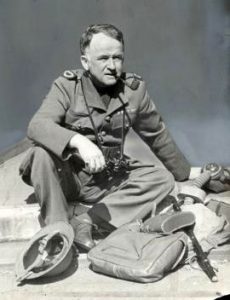
For the past week, those of us trying to find words for the horrors of the Russian invasion of Ukraine have learned depravity has no end. First the invaders bombed apartment buildings and theatres indiscriminately. Then, they fired missiles specifically targeting civilian hospitals and schools.
Now Human Rights Watch has reported accounts of Russian occupiers raping women. Maria Mezentseva, an MP in Ukraine, reported one such case.
“There is one … scene when a civilian was shot dead in his house,” she told The Guardian, in the U.K. “His wife was raped several times in front of her underage child.” Added another Ukrainian MP, Lesia Vasylenko, “Most of these women have either been executed after the crime of rape, or they have taken their own lives.”
It doesn’t take long for the rest of us to conclude: but for the fortune of circumstance it would be us, our families, our homes devastated by such war crimes. And presidents and prime ministers have said as much.

The prime minister of New Zealand demanded that “Russia must answer to the world for what they’ve done.” And the U.S. president has changed his mind, now preferring to call Vladimir Putin “a war criminal.” Masha Efrosinina, an honorary ambassador to the UN, proclaimed, “Let us punish these scum.”
To be fair, the media have published this response to the accusations from Dmitry Peskov, a spokesman for the Russian president: “This information should be seriously doubted. The video material can’t be trusted, as our specialists from the defense ministry detect signs of video forgery and various fakes.”
It’s difficult to believe him when evidence of the atrocities comes from such respected journalists and news agencies as those of mainstream media.

As I often find myself responding in such circumstances, I have retrieved a moment in history – one my father shared with me when I was just learning this profession. One of his contemporaries, war correspondent Gregory Clark, covered the Canadians during the Second World War for the Toronto Star. My father showed me a story Clark filed from Italy in September 1943.
“Monsters in victory and monsters in flight,” Clark wrote, “the Germans have added to the imperishable name of Lidice in Czechoslovakia the little name of Rionero in Italy, and I am one of three witnesses.”
Clark reported a poignant account of the brutality of a party of German soldiers who came down the main street of Rionero and stopped in front of the house of Pasquale Sibilia to shoot a chicken. The Italian’s seven-year-old daughter, Elena, ran inside to tell her father, who came out to confront the Germans.
The German sergeant shot Pasquale in the leg. The Italian fired back and hit the German in the hand. Outraged, the Germans, supported by Italian Fascists, rounded up Pasquale and his neighbours and slaughtered 15 of them. Only the approach of Canadian patrols liberating the town prevented further killing.
Clark allowed himself flashes of outrage in the final lines of his Rionero dispatch: “In victory they are monsters. Here their bedraggled and harried rearguard, with the Allies on their very tails, are capable of monstrous acts. Not to enemies, but to humble, poverty-stricken gentle folk, who until two weeks ago were their allies.
“I went back and saw little seven-year-old Elena,” Clark continued. “The dark little cave-like house was filled with lamentation, and when my uniformed figure appeared at the door and asked for piccolo Elena, all I saw was a tiny ragged figure vanish into the inner darkness of the house.
“When the time comes soon for squaring of accounts and I am permitted to attend the peace conference,” Clark concluded, “will you, reader, please clip this story of Rionero out and save it against the day I might in those golden hours to come be guilty of forgetting one word, one sparing phrase, one apology for the dirty savage who roves these mountains now? Save it and send it to me for my shame.
“(For) I vow to remember and remember that ragged little figure against the day these gray-green bastards plead before the bar of humanity.”

When Gregory Clark’s story reached Toronto, editors at the paper agonized over printing the word “bastards.” (Remember this was 1943.) The matter was brought to the attention of publisher Joseph E. Atkinson.
The word had never been printed in the newspaper before. He read Clark’s report and quickly told editors, “Let it go.”
The equivalent in the accusation of Russian atrocities in Ukraine is MP Maria Mezentseva’s declaration this week: “We will not be silent.”
Nor should presidents, prime ministers, journalists or any of us.